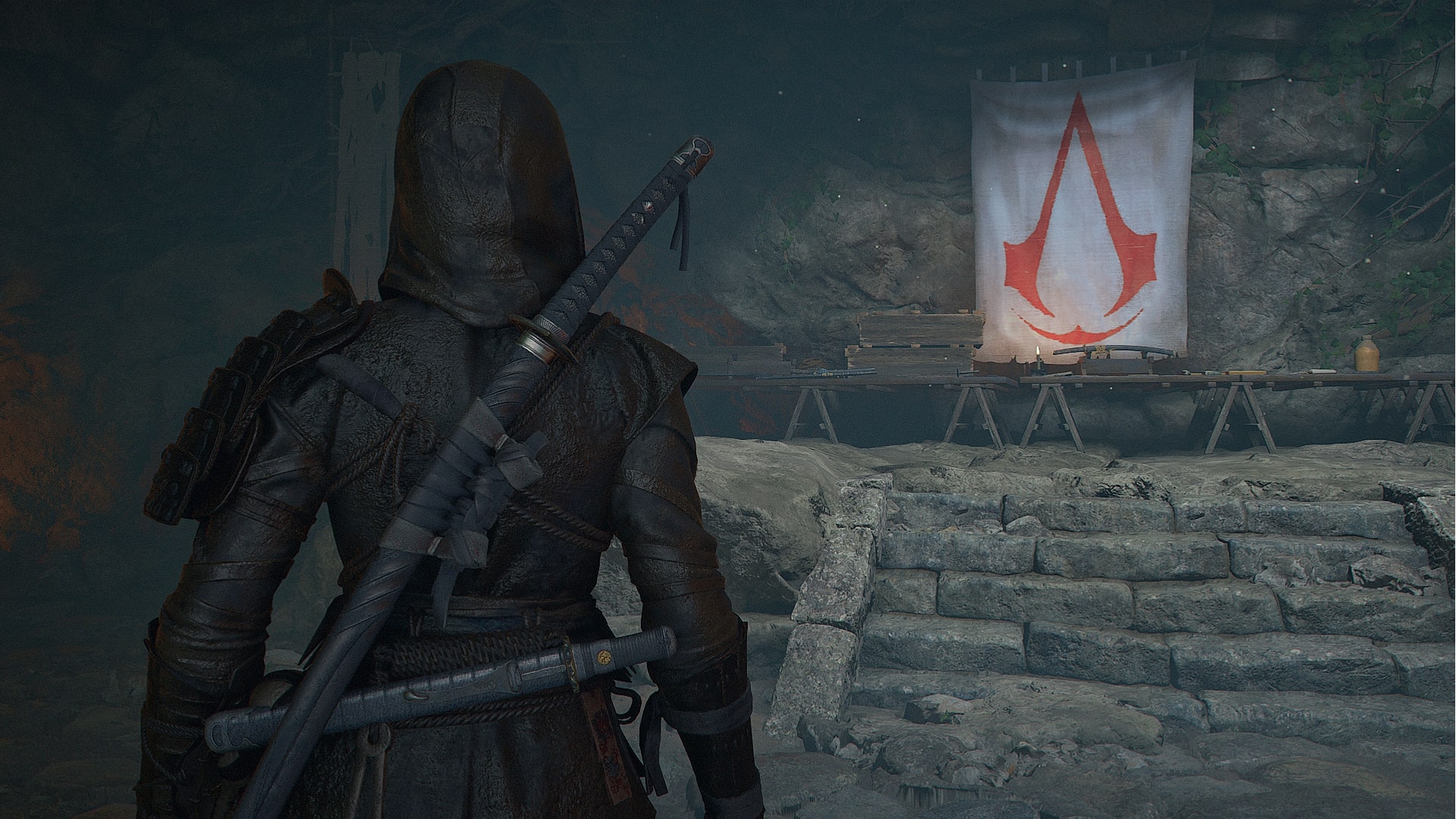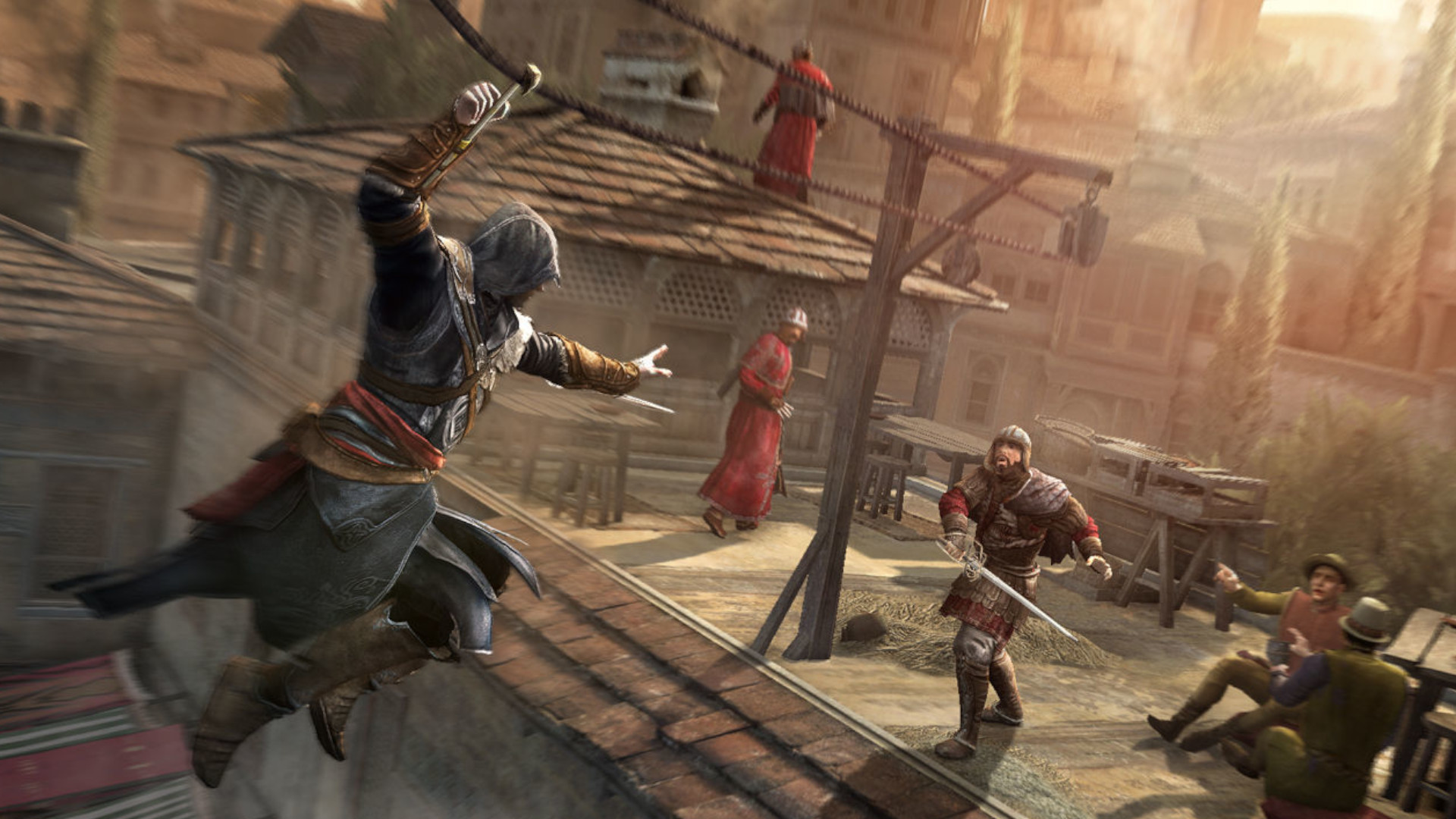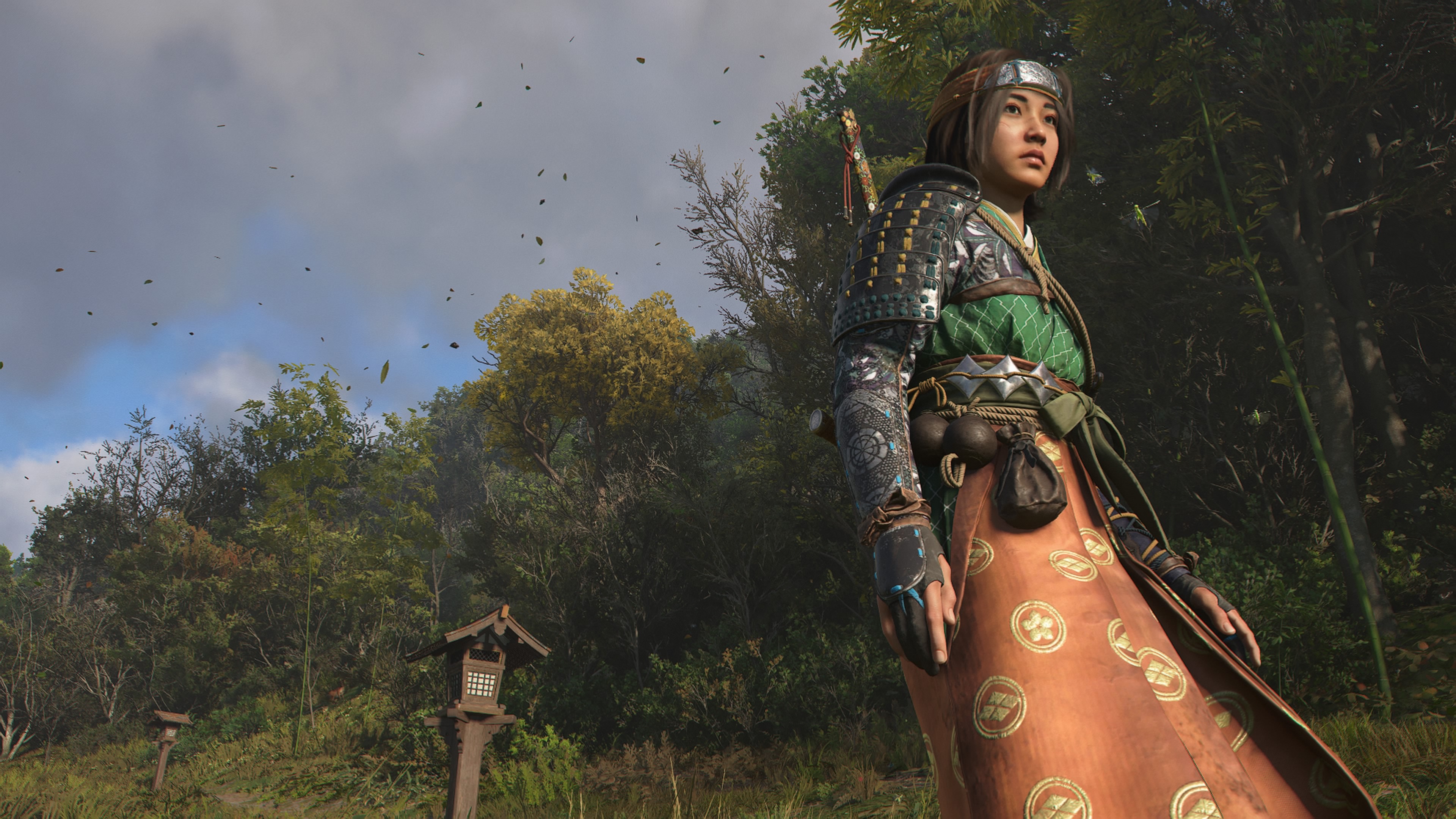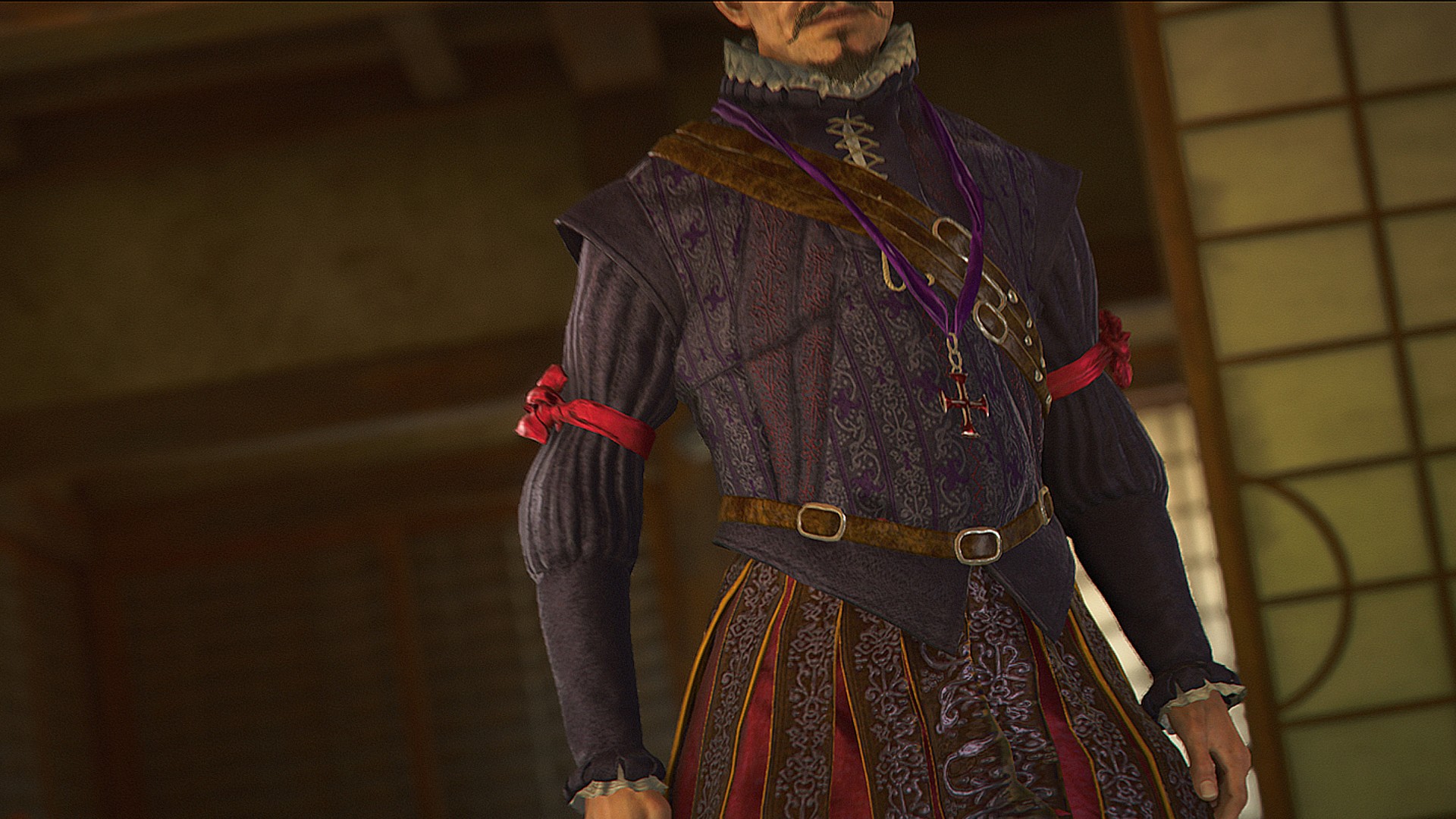Assassin's Creed Shadows is the closest we've been to Ezio's timeline since Revelations, and that could be huge for Codename Hexe
Opinion | The Templars are back in AC Shadows, bringing the RPG back to its roots

Warning: contains some spoilers for Assassin's Creed Shadows
Isn't it ironic that the non-assassin protagonist in Assassin's Creed Shadows is what makes the game feel most connected to its franchise? It's a question I asked myself roughly 15 hours ago, in gameplay time, when a familiar name cropped up again for the first time since 2015's Assassin's Creed Syndicate.
The Templars are finally mentioned again in Ubisoft's latest, and their closest connection isn't to young shinobi warrior Naoe, but former slave-turned-samurai Yasuke. The revelation had me scooting closer to my screen, mouth agape, as a far more compelling story than Naoe's quest for "The Box" started to emerge: that of Templars, slave traders, and Yasuke's path of vengeance. As Ubisoft makes moves toward a new modern storyline for the series, the terminology here speaks to Assassin's Creed Shadows' return to more recent history – and that makes me ever more excited for what Codename Hexe might bring next.
Ordering the ancients


I've spent 20 hours in Assassin's Creed Shadows chasing drip and decor
I've known for some time that Assassin's Creed Shadows is set in 1576, but I never dwelled too much on it. It goes without saying that Japan's Sengoku period is a departure from the ancient settings of Greece, Egypt, and Viking Britain, consequently making Shadows feel recognizably more modern than the last three RPG entries in Assassin's Creed. The existence of advanced weaponry like the bullet-spitting teppo is evidence enough that we're only 450 years ahead this time around. But it's only when I considered the Assassin's Creed timeline itself that I realized just how close it brings us to Ezio, and why suddenly hearing the word "Templar" for the first time since 2015 feels all the more indicative of an exciting new pivot.
The Ezio Trilogy ended in 2012 with Assassin's Creed Revelations. Set in Constantinople in 1512, that means there are only 60 years separating Shadows from one of the best Assassin's Creed games ever – and the hero who made many of us fall in love with them in the first place. The closest we'd come to Ezio's timeline since its ending was Black Flag, which is set more than 200 years after Revelations in 1715. Plenty of other notable assassins have made their mark on the series over the years since, but Ezio's journey seemed to push the series further by building up that warring sentiment between the Assassins and Templars to dramatic heights. To me, I see it as the most "active" point in the lore, so I consider it the effective "middle" of the official timeline.
Bookending it, we have Assassin's Creed Origins – the earliest point, marking the birth of the first Brotherhood in ancient Egypt – versus the bustling metropolis of 1860s London in Assassin's Creed Syndicate. It creates a notable split, separating out the games rooted in ancient historical settings from more recent ones on the timeline. Perhaps the biggest identifying factor when considering which game fits where are the different naming conventions used to describe the Templars, Assassins, and their nascent feud in ancient times.
What's in a name?

I was immediately gripped by the intrigue of Yasuke's personal arc once the Templars got involved...
For the past eight years, ever since Origins followed up Syndicate by going centuries back in time, we haven't had Templars and Assassins, but the Order of the Ancients and the Hidden Ones. Shadows is a sign that Ubisoft is done with all the exposition. Ubisoft is no longer laying the foundations of the Creed and Templars, but actively showing their establishment across the globe while filling in the gaps left between Revelations and Black Flag.
Sign up to the GamesRadar+ Newsletter
Weekly digests, tales from the communities you love, and more
In truth, I'd have liked to see more of the Templars woven throughout Assassin's Creed Shadows. Told in short yet tight bursts, the Templar storyline reveals their ties not only to The Shinbakufu but Yasuke himself. Not much of a light is shone on this incredibly important arc, the first hint of Templars in AC since 2015, and I chalk that down to the game's non-linear mission design. The player learns of their existence in Japan (and Yasuke's heartbreaking connection to them) while pursuing The Performer, meaning some might not even encounter the Templars until the very end of Act 2. I was immediately gripped by the intrigue of Yasuke's personal arc once the Templars finally got involved, revealing a dark, webbed plot, tendrils gripping all corners of the globe...
This setup gives me hope for Hexe to follow suit and return to more recent history, as has already been hinted at in its rumored Witch Trials setting. Whether it turns out to be the Salem Witch Trials of the 1690s or the earlier European Witch Trials of the previous century, Ubisoft has a chance to build out that inter-game connective tissue even further. I'd welcome the prospect of returning to a world featuring the more insidious, sophisticatedly structured Templar Order that we might recognize more closely from Assassin's Creed's stealth-action heyday, ushering in a new age of the Creed RPG where the RPG element isn't always synonymous with ancient history – as Shadows has proven for itself.
Codename Hexe is one of the upcoming Assassin's Creed games we currently know of

Jasmine is a staff writer at GamesRadar+. Raised in Hong Kong and having graduated with an English Literature degree from Queen Mary, University of London in 2017, her passion for entertainment writing has taken her from reviewing underground concerts to blogging about the intersection between horror movies and browser games. Having made the career jump from TV broadcast operations to video games journalism during the pandemic, she cut her teeth as a freelance writer with TheGamer, Gamezo, and Tech Radar Gaming before accepting a full-time role here at GamesRadar. Whether Jasmine is researching the latest in gaming litigation for a news piece, writing how-to guides for The Sims 4, or extolling the necessity of a Resident Evil: CODE Veronica remake, you'll probably find her listening to metalcore at the same time.
You must confirm your public display name before commenting
Please logout and then login again, you will then be prompted to enter your display name.


